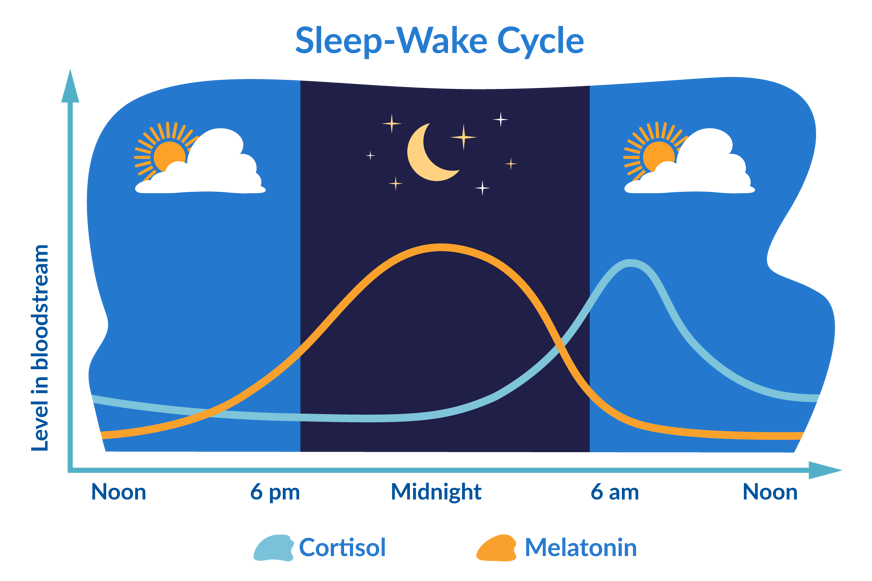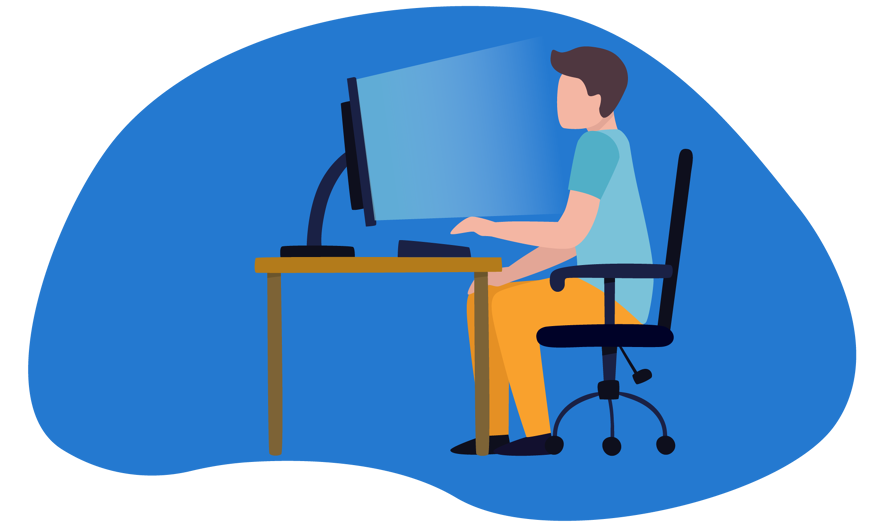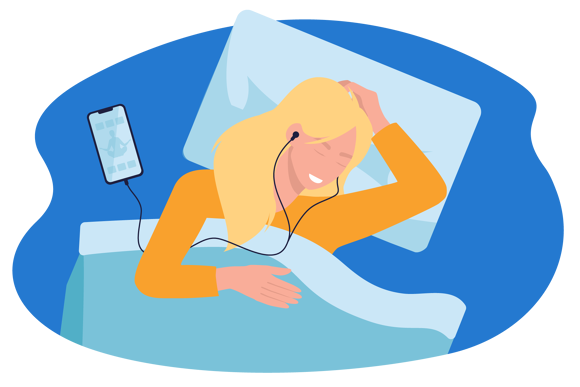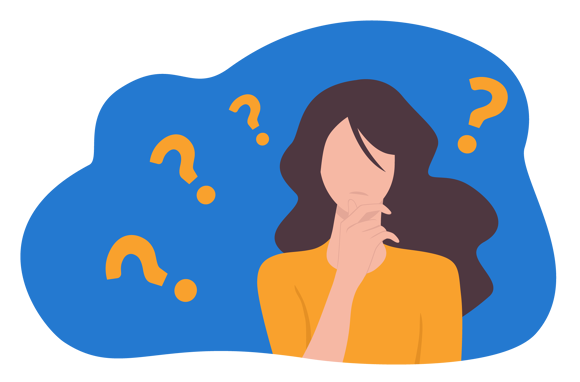Understanding the circadian rhythm
The circadian rhythm is an internal biological clock that regulates our sleep-wake cycle [1] and other physiological processes, such as body temperature, digestion and hormone production.
It operates on a cycle of around 24 hours [1] and is influenced by external factors such as exposure to light and mealtimes.

The circadian cycle helps our bodies prepare for environmental changes, particularly when we wake up and go to bed.
This cycle is essential for keeping our bodies in balance and ensuring a good quality of sleep, often referred to as the circadian cycle.
However, when these rhythms are disrupted or misaligned, it can lead to a condition known as Circadian Rhythm Sleep Disorder (CRSD).
What is circadian rhythm sleep disorder?
Circadian Rhythm Sleep Disorder (CRSD) occurs when there’s a misalignment between an individual's internal clock and their environment [2], often resulting in sleep difficulties, fatigue, and impaired daily functioning.
Unlike typical sleep issues, CRSD isn't just a result of poor sleep hygiene; it's rooted in the body's biological clock not syncing correctly with the day-night cycle. 🌙
Common types of circadian rhythm sleep disorder
There are actually a few different known classifications [3] of CRSD, which we look at in more detail below.
🌌 Delayed Sleep Phase Disorder (DSPD)
People with DSPD have a significantly delayed sleep schedule.
They feel sleepy late at night, often after midnight, making it challenging to wake up early in the morning.
🥱 Advanced Sleep Phase Disorder (ASPD)
In ASPD, individuals feel sleepy in the early evening and wake up very early in the morning.
This can interfere with evening activities and social life.
🚧 Shift Work Disorder
This affects people working non-traditional hours, such as night shifts.
The body struggles to adjust to irregular sleep times, leading to chronic fatigue and difficulty maintaining alertness.
🥴 Irregular Sleep-Wake Rhythm
This disorder is characterised by fragmented sleep, with no consistent sleep or wake times, often affecting people with neurological conditions.
⏰ Non-24-Hour Sleep-Wake Disorder
Common among blind individuals, this disorder occurs when the body's internal clock runs on a slightly longer or shorter cycle than 24 hours, resulting in progressively shifting sleep times.
Causes of circadian rhythm sleep disorder
The body's circadian rhythm is influenced by external cues, such as light exposure, meal times, and physical activity.

However, there are several factors that can disrupt this rhythm [4], leading to CRSD:
- Lack of natural light: Light exposure, especially morning sunlight, plays a crucial role in resetting our internal clocks each day.
- Irregular schedules: Unpredictable routines, such as frequently changing work shifts, disrupt the body’s natural rhythm.
- Lifestyle choices: Staying up late or frequently travelling across time zones can interfere with circadian regulation.
- Medical and psychological conditions: Disorders like depression or chronic illnesses may influence or exacerbate circadian rhythm disruptions.
Many sleep habit changes can help regulate the rhythm, but this isn't always possible.
Symptoms of circadian rhythm sleep disorder
Symptoms vary by type but commonly include:
- Difficulty falling asleep or staying asleep
- Daytime fatigue and reduced alertness
- Trouble concentrating
- Mood disturbances
Over time, untreated CRSD can contribute to long-term health issues, such as cardiovascular disease, diabetes, and mental health disorders.
Diagnosing circadian rhythm sleep disorder
Diagnosis [5] typically involves a sleep history assessment and may require a sleep diary over several weeks to document patterns. 📖
Wearable devices, such as actigraphy monitors, can provide additional insights into sleep-wake patterns, while polysomnography (sleep study) may be recommended if other sleep disorders are suspected.
Treatment options
Treatment aims to realign the body’s internal clock with a more conventional schedule.
Strategies include:
- Light therapy: Exposure to bright light, especially in the morning, can help reset the internal clock.
- Melatonin supplements: Taken at specific times, melatonin can aid in adjusting sleep-wake cycles, although professional guidance is recommended.
- Chronotherapy: This gradual shift in sleep and wake times can help stabilise the circadian rhythm over time.
- Lifestyle modifications: Consistent sleep schedules, limiting evening screen time, and maintaining a balanced diet can improve sleep quality.
Please ensure that any concerns regarding your sleep patterns or related symptoms are discussed with your GP or healthcare professional.
Regular follow-ups are essential for monitoring your condition and adjusting treatment as necessary.
Final thoughts
As we navigate our increasingly busy lives, maintaining a consistent sleep-wake schedule and prioritising good sleep hygiene can play a vital role in supporting our circadian rhythms.
Circadian rhythm sleep disorders (CRSDs) represent a significant challenge for many individuals, impacting not only sleep quality but also overall health and daily functioning.
Remember, if you suspect you have a circadian rhythm sleep disorder or are struggling with sleep issues, consulting with a healthcare professional is essential for developing an effective treatment plan that aligns with your unique needs. 🩺
By taking proactive steps and seeking appropriate care, individuals can enhance their sleep quality and overall well-being, paving the way for healthier, more balanced lives.












Alternatively, message us directly via the Contact Us page.